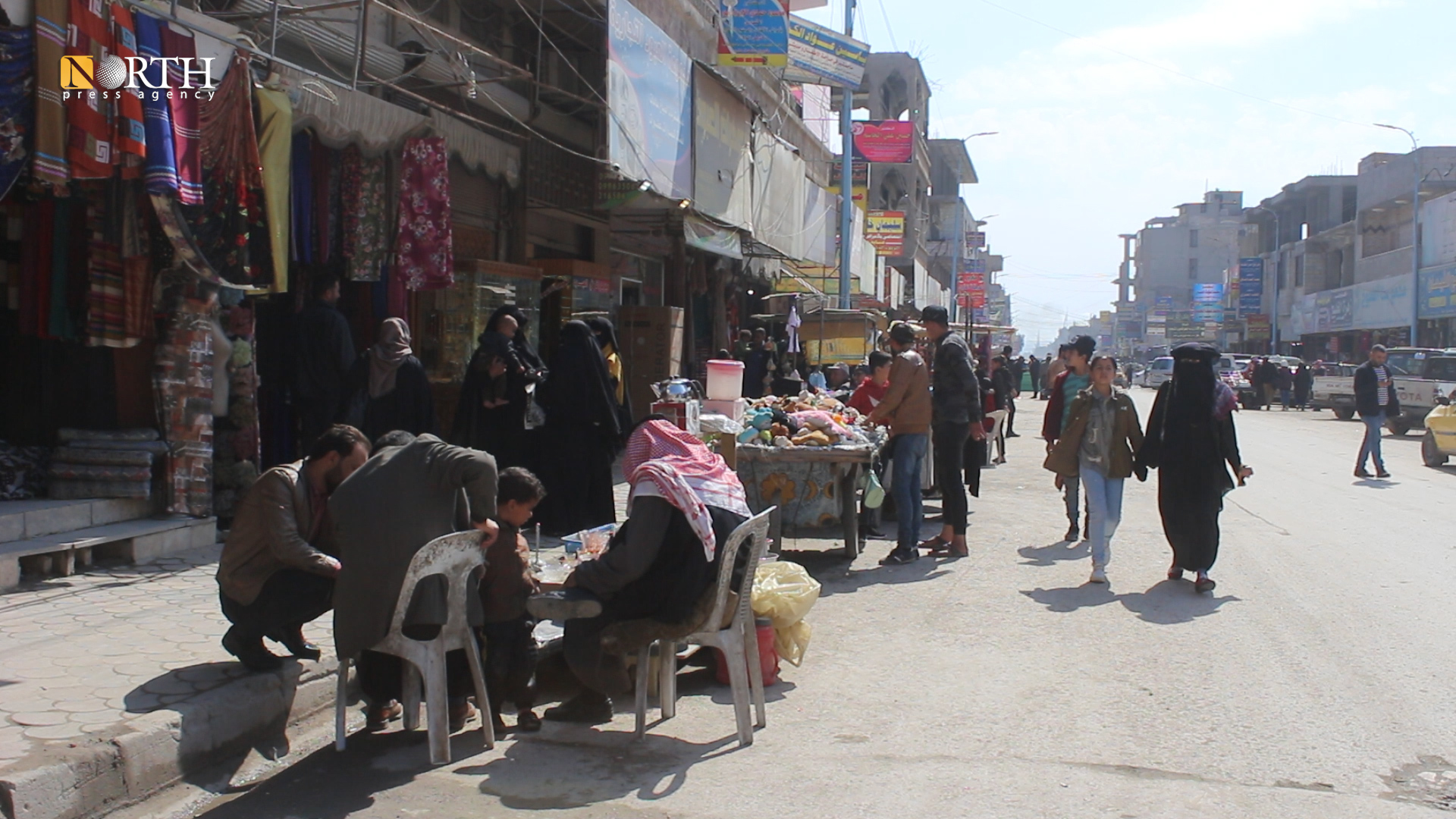Currency collapse causes trading to decline in Syria’s Raqqa
RAQQA, Syria (North Press) – In the city of Raqqa, north Syria, shop owners say that trading has sharply declined recently due to the Syrian pound’s collapse and people’s poor purchasing abilities.
During the past two weeks, the Syrian pound recorded a new decline, bringing the exchange rate on Monday to about 3,700 Syrian pounds (SYP) against the US dollar in the city of Raqqa.
“Trading declined by about 90%; profits value also decreased by about 50%,” Raqqa shopkeeper Mahmud Hamis said.
“We make between 3 and 4 dollars after we used to make about 100 dollars a day in the past,” he added.
“Most of the customers buy one piece, and the cheapest one,” he said.
Shop owners are suffering from deteriorating living conditions in the light of the Syrian pound’s collapse, according to Hamis.
“I used to make $3,000 per month, but for two months I have been witnessing losses of about $600,” he added.
Meanwhile, most shop owners in Raqqa sell their goods considering the exchange rate at about 4,000 SYP even if it is less, fearing losses.
The implementation of the US Caesar Act in July added to the collapse of the Syrian pound, affecting the Syrian markets in general.
Residents of Raqqa are now foregoing luxuries and are concerned with securing food and basic needs.
Although some American officials stated that Caesar Act implementation would not affect Syrians especially in areas north and east Syria, its impacts have worsened living conditions, especially for those with limited incomes.
Abdullah al-Abdullah, a shop owner in Raqqa, said that the increasing exchange rate declined trading in his shop from 3,000,000 SYP to less than 1,000,000 SYP per month.
He pointed out that the market of Tel Abyad Street “has become empty after it has witnessed crowding, and now people are concerned with buying food rather than clothes and furniture.”
Despite the salaries of the Autonomous Administration of North and East Syria (AANES) that have reached an average of 200,000 SYP, residents of the area believe that this amount is inconsistent with the rising prices that have not stopped for years.
He added that shop owners in the market have no work to do.

